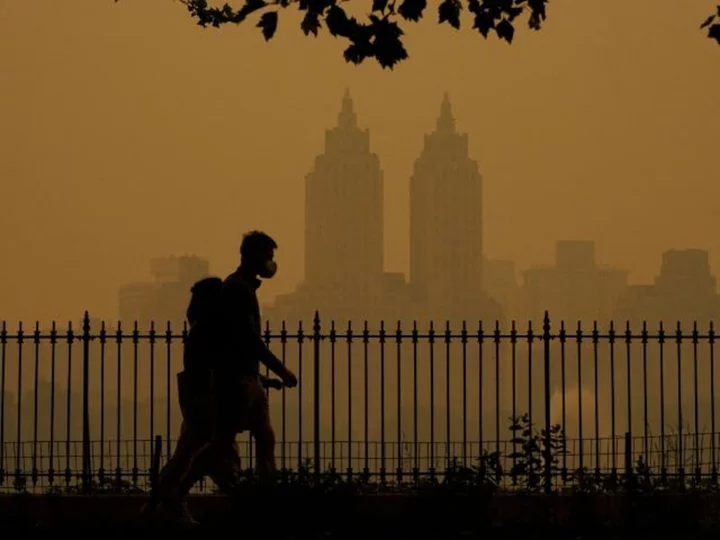Brazil is calling on wealthy nations to pay for the world’s transition to sustainable energy as these countries need bolder commitments to make up for their reliance on polluting power sources.
Developing countries “cannot finance an energy transition in the mold of Europe and the US,” and need assistance from the developed world, Brazil’s Mines and Energy Minister Alexandre Silveira said in an interview in New York. Industrialized nations should take on bigger challenges as “they get their energy from much less clean sources than those in the Global South.”
The request for rich countries to invest more to help the world to transit away from fossil fuels is likely to be mentioned again by President Luiz Inacio Lula da Silva, when he’ll address other world leaders at UN’s General Assembly meeting next week. Since returning to power in January, the 77-year-old leftist has been calling for more international support to help save the Amazon forest and create climate financing solutions.
Brazil’s government has been a vocal advocate of having developed nations follow through on their climate financing pledges, which fall short of the trillions of dollars needed to actually prevent global temperatures from rising more than 1.5 degrees Celsius (2.7 degrees Fahrenheit).
Read More: Lula Enlists Neighbors in Brazil’s Battle to Save the Amazon
Developing nations in the Southern Hemisphere will feed the developed world with clean energy, which will leverage these countries’ position in global trade, according to Silveira. The minister expects Brazil to draw in $400 billion in investment over the next decade for the production of biofuels, including sustainable aviation fuel and green diesel. Silveira sees the production of biofuels in Brazil as its “liberation from the OPEC cartel”.
Brazil can “demand respect from industrialized countries” who will increasingly depend on Latin America’s largest economy for biofuels and green hydrogen, he said. “It’s clear to everyone that green hydrogen, as a decarbonized source of energy in developed nations, will come from countries in the Global South. Brazil comes out ahead on this agenda.”
Read More: With Plenty of Clean Energy, Brazil Aims for Green Hydrogen Export Market
Silveira wants Brazil’s commodity giants Petroleo Brasileiro SA and Vale SA to spearhead the energy transition domestically, including with the production and use of green hydrogen.
While the Brazilian government has pushed for the climate agenda globally, it also seeks to increase oil production at home. State-controlled oil company Petrobras will keep increasing fossil fuel output for decades to come. The country’s output is set to reach a record this year and will keep growing until 2030.
Petrobras is also looking to open up new basins in other parts of Brazil, including the so-called Equatorial Margin, an ecologically sensitive offshore region in the far north of the country. The push to survey the area has led to protests from environmental activists and tensions among Lula’s allies.
Read more: Brazil Moves to Allow Amazon Oil Drilling, Marring Lula’s Summit
Silveira pushed back on criticism that the approach was contradiction, arguing that Brazil needs to find ways to finance the energy transition. The government recognizes the transition “needs exposure, potential for development and financing.”
--With assistance from Andrew Rosati.









